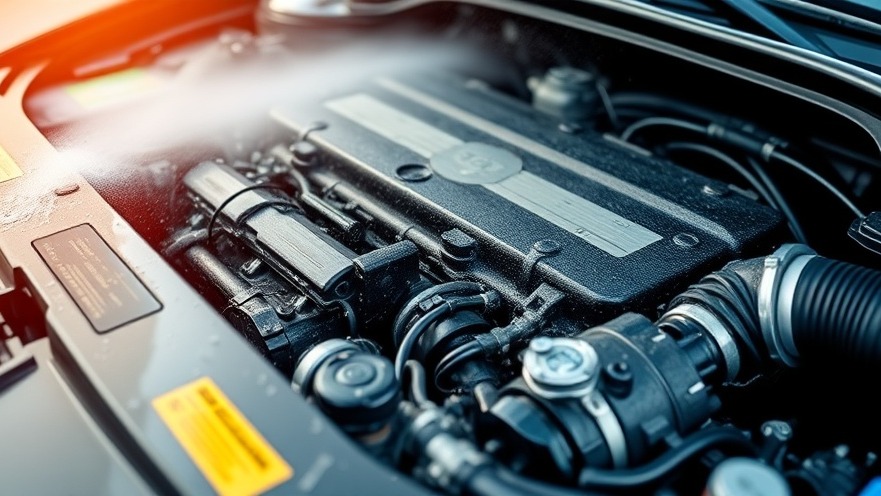
Why Cleaning Your Engine Bay Requires Attention
Cleaning your engine bay is essential for maintaining your vehicle and keeping it in top condition. However, many auto owners may unknowingly make mistakes that could lead to costly repairs. As highlighted in the video Never Do THIS When Cleaning Your Engine Bay! Do THIS Instead, many common cleaning techniques can inadvertently damage vital components. Understanding what not to do during engine cleaning can save you substantial money and prevent mishaps.
In Never Do THIS When Cleaning Your Engine Bay! Do THIS Instead, the video highlights crucial mistakes that can lead to costly vehicle repairs, prompting this detailed discussion on safe engine cleaning practices.
The Dangers of Cleaning a Hot Engine
One of the most critical mistakes car owners make is trying to clean their engine bays immediately after driving. A hot engine and cold water create a dangerous combination that can cause components to crack or warp. Waiting at least an hour for the engine to cool not only protects the metal parts but also allows for a more effective clean. Practicing patience can save you a hefty repair bill down the road.
Cover Key Components
Another common misstep is spraying water directly on sensitive components like the alternator or electrical connectors. Many people assume that all parts are waterproof or resistant to moisture, but this isn't the case. Instead, use plastic covers or aluminum foil to shield these areas. By doing this, you'll significantly reduce the risk of electrical shorts and corrosion that can lead to serious engine issues.
Light Touch: Water Usage
When it comes to cleaning, remember that more water isn’t better. Using too much water can allow it to seep into places where it doesn't belong, such as spark plug wells or wiring harnesses. It's best to employ a light mist rather than aggressive spraying. This controlled approach helps guide dirt away effectively while minimizing the risk of damage.
Choosing the Right Cleaner
The cleaning products you use matter greatly. Many auto owners make the mistake of using brake cleaner on plastic components, which deteriorates their flexibility and durability over time. Opt for products specially formulated for engine cleaning to avoid damaging any surfaces. For stubborn oil and grease, select cleaners designed specifically for petroleum residues, ensuring a thorough clean without harm.
Taking Care of Electrical Connectors
Electrical connectors are the nervous system of your vehicle, and they must be treated with care. Many believe that connectors are entirely sealed, but most are only splash-resistant. High-pressure water can force moisture deep inside, leading to corrosion and electrical failures that are expensive to repair. A gentle, misty spray from a distance can help keep them safe.
Finishing Touches: Inspecting for Water Traps
After cleaning, not checking for hidden water pockets can cause long-term issues. Water tends to pool in difficult-to-see areas like wiring harnesses or intake manifolds, hiding from plain sight. To combat this, use compressed air or a leaf blower to ensure all moisture is removed. This simple step can save you from unwanted rust and electrical gremlins sneaking into your vehicle.
Simple Practices for Maintenance
The best way to avoid issues when cleaning your engine bay is to adopt regular inspection and maintenance habits. Keeping the engine clean simply helps maintain its reliability and performance. Further, if you notice any leaks or irregularities, it’s crucial to inspect them immediately to prevent further damage. Prevention is key to vehicle longevity.
Conclusion: Avoid Common Engine Bay Cleaning Mistakes
Practicing safe cleaning techniques will not only enhance the aesthetic of your vehicle but also prolong its life. Clean your engine bay with patience and care, adhering to safe practices as discussed in the video. For more tips on car maintenance and care, follow our updates and stay informed. The right knowledge can save you both time and money, making your vehicle ownership experience much more enjoyable.
 Add Row
Add Row  Add
Add 




Write A Comment